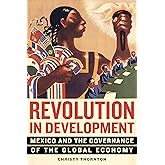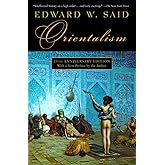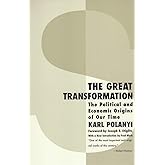
Amazon Prime Free Trial
FREE Delivery is available to Prime members. To join, select "Try Amazon Prime and start saving today with FREE Delivery" below the Add to Cart button and confirm your Prime free trial.
Amazon Prime members enjoy:- Cardmembers earn 5% Back at Amazon.com with a Prime Credit Card.
- Unlimited FREE Prime delivery
- Streaming of thousands of movies and TV shows with limited ads on Prime Video.
- A Kindle book to borrow for free each month - with no due dates
- Listen to over 2 million songs and hundreds of playlists
Important: Your credit card will NOT be charged when you start your free trial or if you cancel during the trial period. If you're happy with Amazon Prime, do nothing. At the end of the free trial, your membership will automatically upgrade to a monthly membership.
Buy new:
-25% $24.00$24.00
Ships from: Amazon.com Sold by: Amazon.com
Save with Used - Acceptable
$19.99$19.99
Ships from: Amazon Sold by: madluckbooks

Download the free Kindle app and start reading Kindle books instantly on your smartphone, tablet, or computer - no Kindle device required.
Read instantly on your browser with Kindle for Web.
Using your mobile phone camera - scan the code below and download the Kindle app.

Follow the author
OK
Foundations of Despotism: Peasants, the Trujillo Regime, and Modernity in Dominican History Paperback – May 26, 2004
Purchase options and add-ons
This book explores the history of the Dominican Republic as it evolved from the first European colony in the Americas into a modern nation under the rule of Rafael Trujillo. It investigates the social foundations of Trujillo’s exceptionally enduring and brutal dictatorship (1930-1961) and, more broadly, the way power is sustained in such non-democratic regimes.
The author reveals how the seemingly unilateral imposition of power by Trujillo in fact depended on the regime’s mediation of profound social and economic transformations, especially through agrarian policies that assisted the nation’s large independent peasantry. By promoting an alternative modernity that sustained peasants’ free access to land during a period of economic growth, the regime secured peasant support as well as backing from certain elite sectors. This book thus elucidates for the first time the hidden foundations of the Trujillo regime.
- Print length398 pages
- LanguageEnglish
- Publication dateMay 26, 2004
- Dimensions6 x 1 x 9 inches
- ISBN-100804751056
- ISBN-13978-0804751056
Book recommendations, author interviews, editors' picks, and more. Read it now.
Customers who bought this item also bought
Editorial Reviews
Review
Winner of the John Edwin Fagg Prize of the American Historical Association for the best book on the history of Spain, Portugal, or Latin America (2003)
A 2004 Choice Outstanding Academic Title
From the Inside Flap
The author reveals how the seemingly unilateral imposition of power by Trujillo in fact depended on the regime’s mediation of profound social and economic transformations, especially through agrarian policies that assisted the nation’s large independent peasantry. By promoting an alternative modernity that sustained peasants’ free access to land during a period of economic growth, the regime secured peasant support as well as backing from certain elite sectors. This book thus elucidates for the first time the hidden foundations of the Trujillo regime.
From the Back Cover
“...It becomes clear that Foundations of Despotism is indeed a sophisticated, scholarly antidote to many of the works on the Trujillo regime that have come out in the past four decades...”—Canadian Journal of History
About the Author
Product details
- Publisher : Stanford University Press; 1st edition (May 26, 2004)
- Language : English
- Paperback : 398 pages
- ISBN-10 : 0804751056
- ISBN-13 : 978-0804751056
- Item Weight : 1.2 pounds
- Dimensions : 6 x 1 x 9 inches
- Best Sellers Rank: #2,299,133 in Books (See Top 100 in Books)
- #1,827 in Caribbean History
- #63,275 in World History (Books)
- Customer Reviews:
About the author

Richard Lee Turits is Associate Professor of History, Africana Studies, and Latin American Studies at William & Mary. He is the author of "Freedom Roots: Histories from the Caribbean" (University of North Carolina Press, 2019), written with Laurent Dubois, and "Foundations of Despotism: Peasants, the Trujillo Regime, and Modernity in Dominican History" (Stanford University Press, 2003). The latter received the John Edwin Fagg Prize of the American Historical Association and the Bolton-Johnson Prize of the Conference on Latin American History and was named a Choice Outstanding Academic Title. "Foundations of Despotism" was published in Spanish under the title "Cimientos del despotismo: Los campesinos, el régimen de Trujillo y la modernidad en la historia dominicana"(Academia Dominicana de la Historia, 2017). "Freedom Roots" was also named an Outstanding Academic Book by Choice magazine. Turits is the author of numerous articles, including the prize-winning “A World Destroyed, A Nation Imposed: The 1937 Haitian Massacre in the Dominican Republic,” Hispanic American Historical Review 82, no. 3 (Aug. 2002), which has been translated into French, Spanish, and Kreyòl. "Terreurs de frontière: Le massacre des Haïtiens en République Dominicaine en 1937," a book of essays and oral histories by Turits and Lauren Derby related to the 1937 Massacre in the Dominican Republic and to Haitian-Dominican history, was published in 2021 (Port-au-Prince: Centre Challenges, 2021), edited and with a preface by Watson Denis. Turits is currently finishing a book entitled “An Enslaved New World: Slavery, Freedom, and the Making of Race in Colonial Santo Domingo (1492-1822).” Turits has been awarded numerous grants, including from the National Humanities Center, the National Endowment for the Humanities, Fulbright, the Social Science Research Council, and the Harvard Academy for International and Area Studies.
Customer reviews
- 5 star4 star3 star2 star1 star5 star70%12%19%0%0%70%
- 5 star4 star3 star2 star1 star4 star70%12%19%0%0%12%
- 5 star4 star3 star2 star1 star3 star70%12%19%0%0%19%
- 5 star4 star3 star2 star1 star2 star70%12%19%0%0%0%
- 5 star4 star3 star2 star1 star1 star70%12%19%0%0%0%
Customer Reviews, including Product Star Ratings help customers to learn more about the product and decide whether it is the right product for them.
To calculate the overall star rating and percentage breakdown by star, we don’t use a simple average. Instead, our system considers things like how recent a review is and if the reviewer bought the item on Amazon. It also analyzed reviews to verify trustworthiness.
Learn more how customers reviews work on AmazonTop reviews from the United States
There was a problem filtering reviews right now. Please try again later.
- Reviewed in the United States on August 28, 2013The book provides a detailed account of Dominican history leading up to and through Trujillo. Turtis relies heavily on land documents and testimonies, yet fails to account for the issue of race more throughly. The relationship between Haiti and the Dominican Republic and its peasantry is not fully explored. It's a dense book that will give the reader further understanding of the inner-workings of the Trujillo regime. It also highlights the fact that not all peasants disguised Trujillo by teasing out the details of his relationship with different geographic regions of Dominican Republic. It's a fascinating read for anyone interested in the history of this half of the island.
- Reviewed in the United States on February 17, 2009For me this book was an eye-opening history of the foundation of Generalissimo Trujillo's long-lasting power. When I picked up this title I sought to know, beyond the oppression and excesses, HOW and WHY Dominicans put up with the guy for thirty years. As with Fidel Castro that long a reign takes much more than troops and torture to maintain. Turit's book offered many lessons on statecraft, nation-building and Trujillo's role in their development in DR. The largest lesson from this book was that despite the cruel and twisted aspects of his story Trujillo was actually a highly effective head of state whose early policies did great good to the infant nation. His regime sped up and solidified economic processes that unshackled DR from being a marginal backwater. Principally this meant 'domesticating' our Dominican grandparents who were for the most part stubbornly nomadic ranchers and gatherers. None had succeeded in this for centuries. He drew the Dominican national boundaries, both territorially and tragically in the sense of identity. He almost literally created the state apparatus of DR. Most shockingly to me he successfully redistributed land to the common man the way so many Latin-American movements of the left promised and often failed to deliver. This last point is the one around which Foundations is centered. Clearly Trujillo acted out of greed and self-interest, but his cunning was in seeing where his interests aligned with those of our then often impoverished, landless Dominican grandparents.
Foundations is written in an academic, densely foot-noted style and doesn't have a thrilling narrative. Unless you bring your own curiosity as I did you won't find it as gripping as titles on Trujillo's lurid dark side. Still to me all histories ultimately begin with the material and economic facts, the broad determinants as illustrated by documented particulars, and on that level Turits very much delivers. Read this book to begin to understand the structural reasons why DR generated, accepted and even needed a Generalissimo Trujillo. Fellow Dominicanos will be glad to find that contrary to stereotypes around our history in this work the Trujillo regime is explained not just a puppet government installed over a hapless banana republic by the US State Department. Alongside El Jefe, in this piece of history the unlikely co-protagonist was the Dominican campesino and not the big bad empire.








